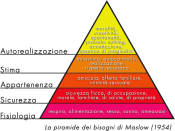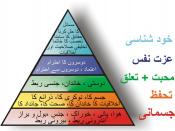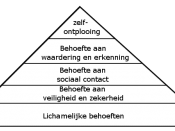4. Findings4.1 A manager's role the most pivotal role of any manager is performance; any business is assessed on its achievement of set targets, and it is the manager's job to ensure this. "Effective leadership is not about making speeches or being liked; leadership is defined by results not attributes" Peter F. Drucker. Key to the results of any organisation is the employees and their motivation to achieve high levels of efficiency; there are many different viewpoints and models on how a manager should motivate their workforce and on what motivates them. There are 4 main theories that do not all come to the same conclusion, these are by Taylor, Mayo, Maslow and Herzberg.
4.2 Four main theories of motivationTwo of these theories assume that workers are only motivated by one factor. The 'Theory of Scientific Management' written by Fredrick Taylor (1856-1917) assumes that levels of pay motivate workers. Whereas Elton Mayo (1880-1949) research the 'Hawthorne Studies' found that they are motivated by their Social Requirements.
The other two theories adopt a multi-factored approach. Abraham Maslow (1908-1970) in 'A theory of human motivation' argued that there were 5 different levels of needs that motivated workers that make a hierarchical structure see appendix item A. Fredrick Herzberg (1923-2000) introduced the Motivator-Hygiene theory argued that there were many factors that could motivate (motivators) but that there were also things that could de-motivate but not motivate (hygiene factors).
4.2.1 Single Factor theoriesTaylor's theory based on pay aspects assumed, in line with McGregor's Theory X, that all employees were idle and tried to do the least work possible "Hardly a competent workman can be found who does not devote a considerable amount of time to studying just how slowly he can work and still convince his employer that he is going at a good...


